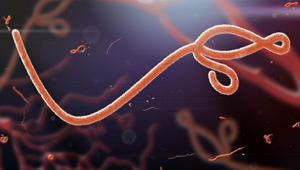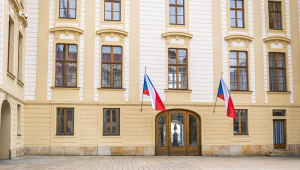In the past two weeks, 100 people have been killed by the disease, and experts are worried about the risk of it spreading further.
A second confirmed death from the disease in Goma city has led to Rwanda, whose city of Gisenyi is immediately to the east, to close its border with the DRC.
The UK has so far funded a vaccine, engaged local communities and paid for training for local health workers.
But new international development secretary Alok Sharma has warned that money alone is not enough, and called for greater effort to stop the disease that has killed more than 1,750 people since the outbreak was declared on 1 August 2018.
Sharma said: “Ebola has already taken far too many lives in the Democratic Republic of Congo.
“Shockingly it has wiped out entire families and, a year after this outbreak started, it is showing no sign of slowing down.
“The UK has led the way in tackling this killer disease and we can be proud of our support to create a life-saving Ebola vaccine which has inoculated 180,000 people so far.
“Diseases like Ebola have no respect for borders. This could be spread beyond DRC.
“It is essential that the rest of the international community steps up to help. If we don’t act now, many thousands more lives could be lost.”
DfID said it is using its experience gained during the 2014 outbreak in Sierra Leone to strengthen its work in DRC, where some people still do not believe Ebola is real.
Awareness training, especially for women (who are more likely to get the disease in their role as primary carers), comprises part of the effort to foster a community-led response.
Four UN agencies, including WHO and UNICEF, released a joint statement in response to the most recent death in Goma, saying they will continue to work “intensively” to stop further spread.
They said the mainly Congolese healthcare workers on the front line were “heroic”, but the response was difficult because of ongoing violence in the region.













